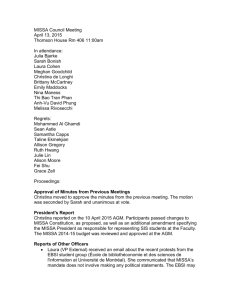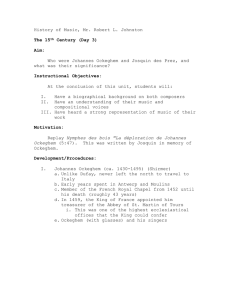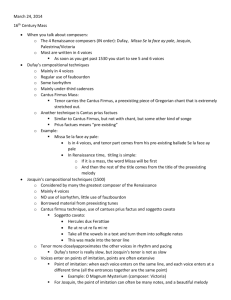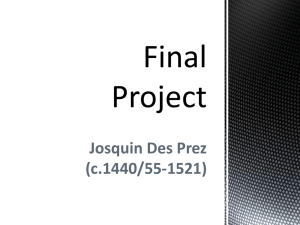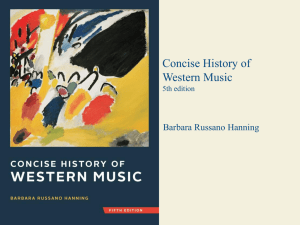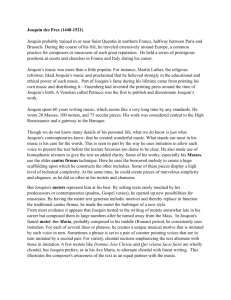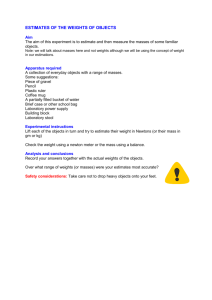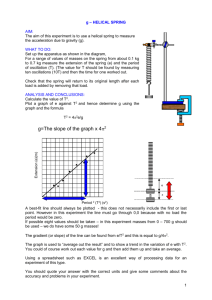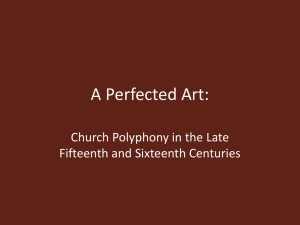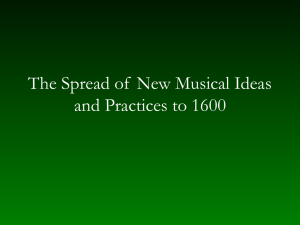Music of the Franco-Flemish Composers Printing Press Music
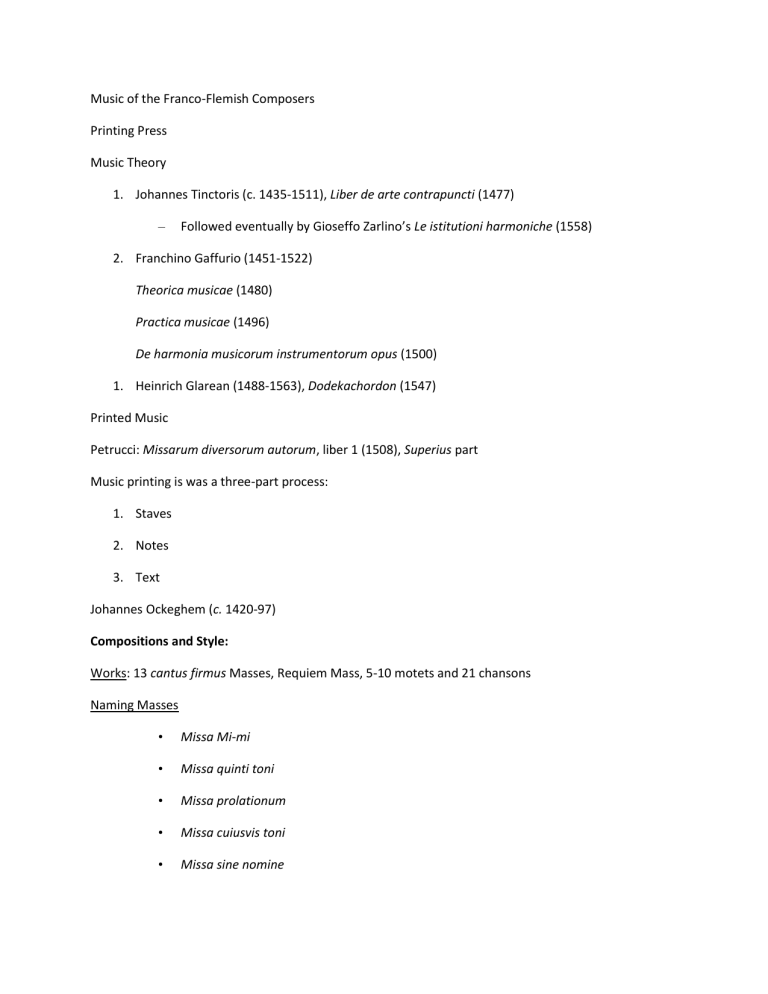
Music of the Franco-Flemish Composers
Printing Press
Music Theory
1.
Johannes Tinctoris (c. 1435-1511), Liber de arte contrapuncti (1477)
– Followed eventually by Gioseffo Zarlino’s Le istitutioni harmoniche (1558)
2.
Franchino Gaffurio (1451-1522)
Theorica musicae (1480)
Practica musicae (1496)
De harmonia musicorum instrumentorum opus (1500)
1.
Heinrich Glarean (1488-1563), Dodekachordon (1547)
Printed Music
Petrucci: Missarum diversorum autorum, liber 1 (1508), Superius part
Music printing is was a three-part process:
1.
Staves
2.
Notes
3.
Text
Johannes Ockeghem (c. 1420-97)
Compositions and Style:
Works: 13 cantus firmus Masses, Requiem Mass, 5-10 motets and 21 chansons
Naming Masses
• Missa Mi-mi
• Missa quinti toni
• Missa prolationum
• Missa cuiusvis toni
• Missa sine nomine
Johannes Ockeghem (c. 1420-97)
Example: Gille Binchois, Chanson, Plus en plus (NAWM 34)
Example: Johannes Ockeghem: Angus Dei, Missa De plus en plus (NAWM 37)
Jacob Obrecht (c. 1452-1504)
Compositions and Style:
Works: 29 cantus firmus Masses on chant or secular songs, 28 motets, chansons in Dutch and some instrumental pieces
Example: Anon: Sub Tuum Praesidium (Plainchant)
Example: Obrecht, Missa Sub Tuum Praesidium: Kyrie
Josquin des Prez (ca. 1440-1521)
Compositions and Style:
Works: 18 Masses, over 55 motets and liturgical works, and ca. 65 secular works.
Motets
Example: Josquin, motet, Ave Maria … virgo serena (NAWM 41)
Masses and Mass types (cf. Mass Cycle)
1.
Cantus firmus Masses
Soggetto cavato dalle vocali (“subject carved/drawn from the vowels’), such as the
Missa Hercules dux Ferrariae.
Example: Josquin, Missa Hercules dux Ferrariae
2.
Imitation or Parody Mass: borrows all voices of a pre-existing polyphonic work and not just a single melody. These references are heard in each of the Mass movements. The compositional treatment makes rather free use it.
3.
Paraphrase Mass: is based on a single melody (hymn, secular song, etc.); but instead of using the melody in one voice, it is adapted for use in all voices, sometimes in smaller motives treated in points of imitation.
Venantius Fortunatus (6th c.), Hymn: Pange lingua
Example: Josquin, Missa Pange lingua [NAWM 42]
